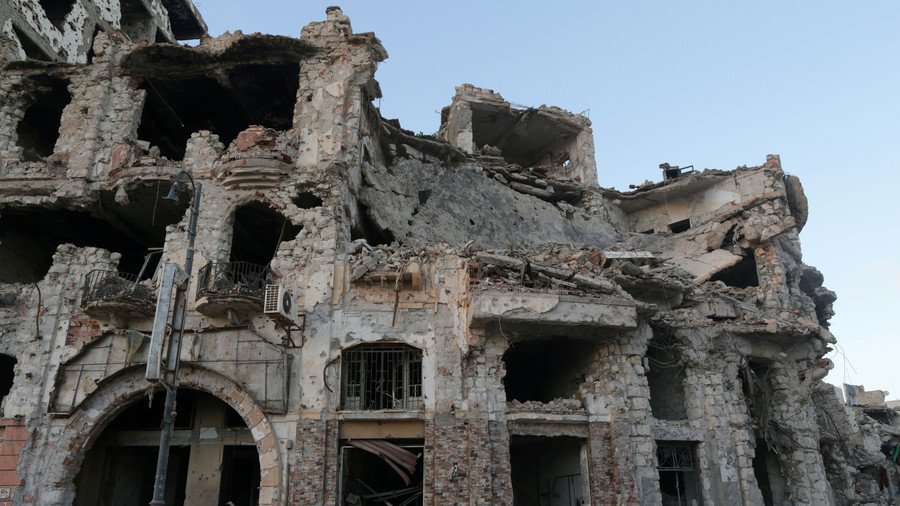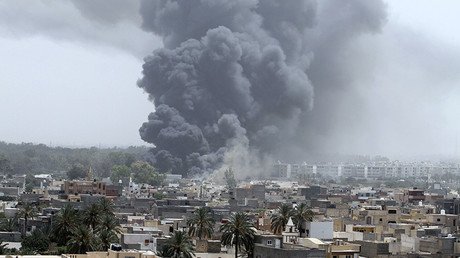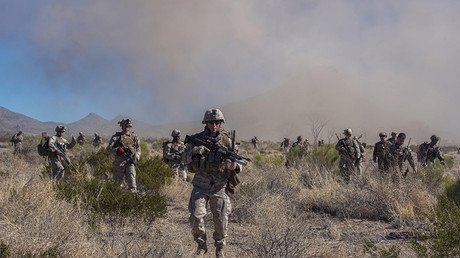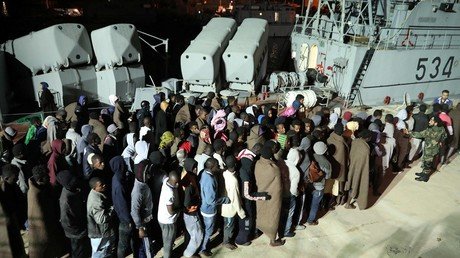US launches airstrike in Libya, kills Al-Qaeda chief

The US is back to bombing Libya, this time in an attempt to fight Al-Qaeda. The war-ravaged country has become a safe haven for terrorist groups after the NATO intervention brought down the Gaddafi government.
The airstrike conducted on Saturday killed two terrorists, “including Musa Abu Dawud, a high ranking al-Qa'ida in the Lands of the Islamic Maghreb (AQIM) official,” US Africa Command (AFRICOM) said in a statement on Wednesday, noting that no civilians were killed.
Dawud was an important Al-Qaeda operative, according to AFRICOM. He “trained AQIM recruits in Libya for attack operations in the region. He provided critical logistics support, funding and weapons to AQIM, enabling the terror group to threaten and attack US and Western interests in the region,” the statement added.
U.S. confirms strike against al-Qa’ida’s Musa Abu Dawud - https://t.co/D336RSP13Spic.twitter.com/S4VrGlyaks
— US AFRICOM (@USAfricaCommand) March 28, 2018
Prior to this, US forces conducted two precision airstrikes in Libya against Islamic State (IS, formerly ISIS/ISIL) in September 2017, killing 17 militants.
This recent growth of IS and Al-Qaeda in Libya can be traced directly to NATO’s removal of Muammar Gaddafi’s government in 2011, says Michael Maloof, a former Pentagon senior security policy analyst.
“If Gaddafi were still in office and still in power he would have been helping us go after Al-Qaeda,” Maloof told RT. “When he was killed these various jihadist-Salafist groups began to fill that vacuum very rapidly, as did al-Qaeda.”
Now, Al-Qaeda “is re-emerging as a major threat, not only in the Middle East but in North Africa,” Maloof added.
Libya has also emerged as a base of Al-Qaeda’s financial power, partly because the country provides direct access to the whole Mediterranean, according to Grigory Lukyanov, a Middle East expert and a senior lecturer at the Higher School of Economics in Moscow.
“Al-Qaeda established close ties with smugglers, local tribes, involved in smuggling wares,” he told RT. “This provides effective financing of extremist groups in North Africa and Sahel countries, so Al-Qaeda in Maghreb became an important financial agent, that could provide financial, organizational and reputational support for local groups.”
Libya remains highly volatile and has been racked by open conflict between rival militia groups since 2011. The absence of governance means the region has turned into an incubator for terror groups such as IS, which seized the city of Sirte in 2015.
One particular consequence of the conflict has been human trafficking and slavery in the region, while an estimated 400,000 Libyans remain internally displaced. A recent report from Amnesty International pointed out that migrants and refugees in Libya experience “systematic serious human rights violations and abuses at the hands of state officials, smugglers and armed groups.”
Extensive US involvement in Libya has caused embarrassment for the Obama administration. In September 2012, a year after the war officially ended, armed militants stormed the US diplomatic compound in Benghazi and killed Ambassador J. Christopher Stevens, State Department Information Management Officer Sean Smith, and diplomatic security agents Tyrone Woods and Glen Doherty.
US officials initially claimed that the 2012 attack was a spontaneous response to a YouTube video considered offensive by Muslims, but US intelligence later admitted that the attack was coordinated by the anti-American militant group Ansar al-Sharia.
The incident provoked accusations of incompetence and of an attempted cover-up by the Obama administration. In 2016, House Republicans on the Benghazi Select Committee condemned what they described as “a tragic failure of leadership” by Hillary Clinton, who was serving as Secretary of State at the time of the attack.
Lukyanov says Libya remains an “uncomfortable issue” for both Republicans and Democrats, who are plagued by memories of an “intervention that led not only to a collapse of the regime but to a collapse of the state.”
Like this story? Share it with a friend!















